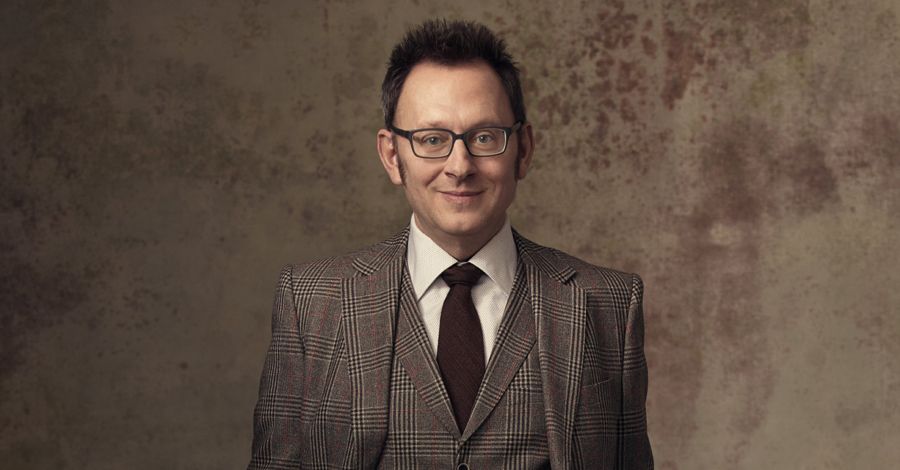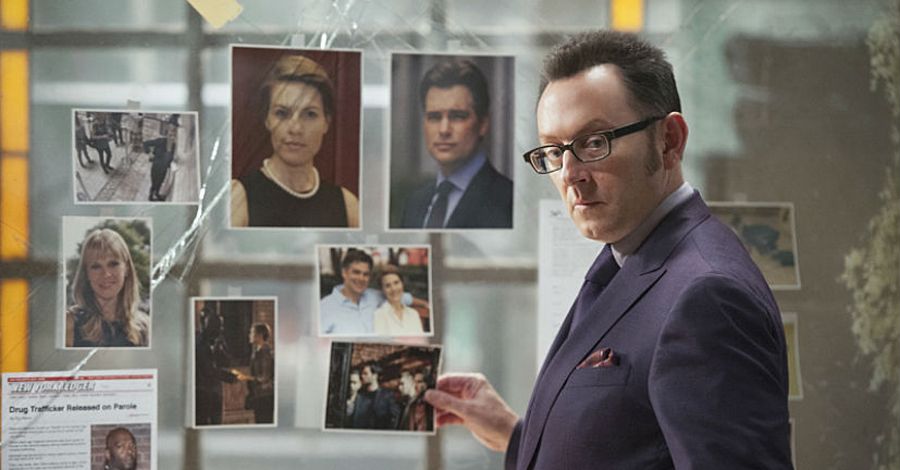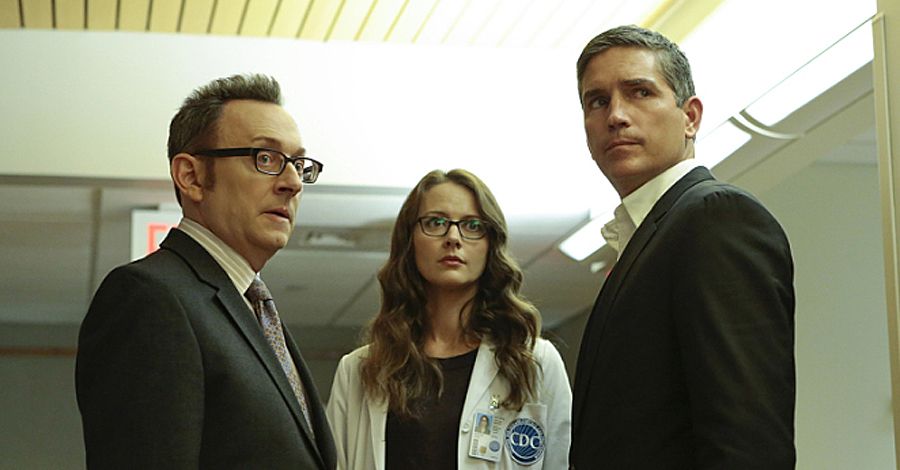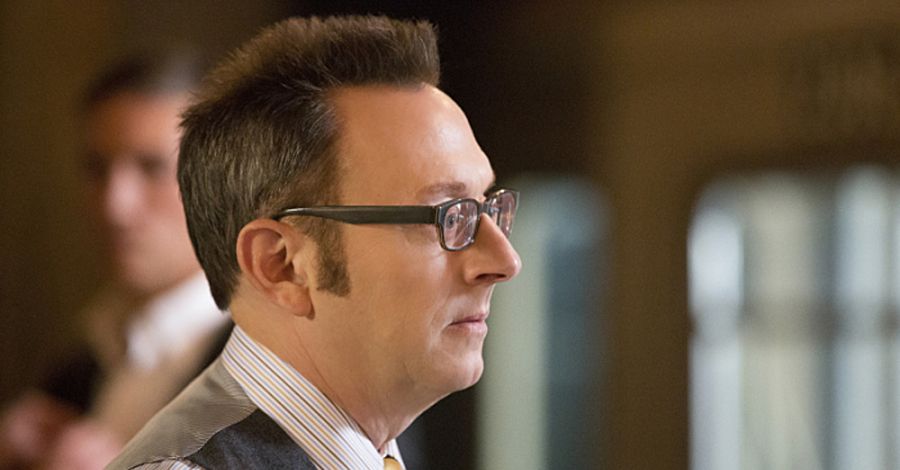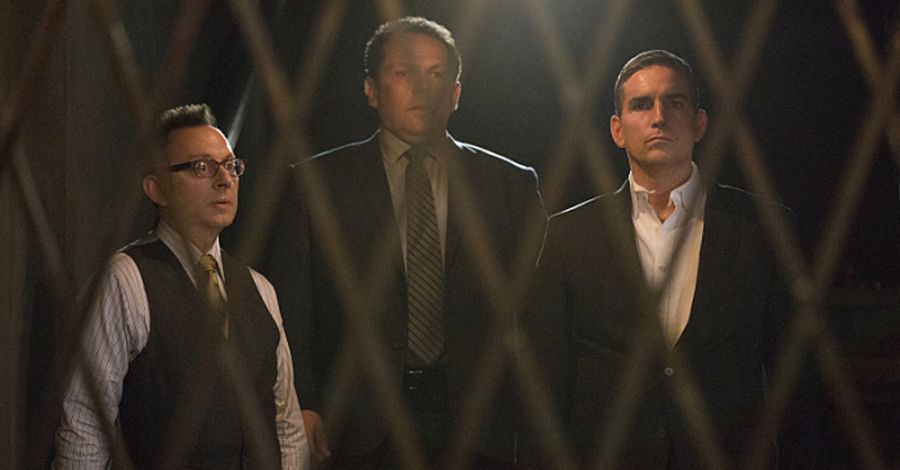Over the past five seasons of "Person of Interest,” billionaire genius Harold Finch (Michael Emerson), former CIA Agent John Reese (Jim Caviezel) and their allies have relied upon The Machine – a mass-surveillance computer system – to predict crimes and save the innocent. Lately, Team Machine has been targeted by Samaritan, an artificial intelligence intent on reshaping the world. In tonight's series finale, "return 0," Finch must rally the troops for one final assault on Samaritan – a mission not everyone may survive.
Emerson spoke with SPINOFF about the evolution of the CBS drama, shocking story developments, and what he is most proud of about “Person of Interest.”
SPINOFF: "Person of Interest" started out as a procedural drama. How happy are you with the way it evolved into something much more serialized and compelling?
Michael Emerson: It's more to my taste. If you are going to work on a show for five years, the actors and the writers would hope to find some overarching narrative or something that ties it all together into one big story. I've always been happy when they got into the mythology and had these uber-stories. I don't know if CBS was that pleased, but it works for me. When you have an audience like ours, they are hungry for it also. They want to get engaged and keep track of a longer storyline and connect the dots over the course of seasons. I think it's more fun. Sure, it's going to be a little tough for someone to tune into Episode 320 and know what's going on, but, so be it. Viewer habits are changing. "Lost" had a lot to do with that. "Lost" was the kind of show that demanded that week-to-week and season-to-season loyalty -- and it paid people back for their attention.
Finch and Reese could have simply been business partners fighting for the greater good. What was the turning point in their relationship when then became friends?
That evolved over time. The whole five seasons has been going from two loners on a suicide mission to a team or even a family. There were certain landmarks. I remember the episode where Reese and Finch washed the dog in a big tub. It was very silly to see these two serious, and possibly violent, men doing something like that. I thought, "OK, this is funny, and we are allowed to be funny." In a way, it gives the grave parts of the show even more gravity because we will have engaged the audience and the characters of the show.
Do you feel "Person of Interest" took more risks as time went on?
Yeah, I think it did. [Executive producers] Jon [Nolan] and Greg [Plageman] got bolder, and they were more convinced that their agenda was a right one, and they were more willing to do battle with the people at CBS that were constantly trying to rope them in a little bit. But, those horses had already left the barn. They honored that stand-alone episode stuff even into Season 5.
How shocked were you with the demise of Root (played by Amy Acker) and her transformation into The Machine this season?
I learned this on "Lost”: It's always a good idea that there are no guarantees about longevity for a character. But, it's also fun -- and we learned this on "Lost," too -- that once the character is killed, it doesn't mean they are gone. I felt that was kind of a “Lost”-ian decision and thought it was cool. I find it tugs on my heartstrings a bit, this whole business of The Machine now talking like Root. I find that moving and compelling.
The Machine turned out to be more than nuts and bolts and wiring. What have you enjoyed about Finch's dynamic with The Machine?
Finch has always gone on that The Machine was not human. It was a tool; it's just there to be used. It's nothing to have personal feelings about. And, yet, over the course of five seasons, he was constantly being drawn in to a more and more familial or parental dynamic with The Machine. This was highlighted by all those flashbacks where we would see Finch training The Machine -- taking it by the hand and teaching it to play games -- and having conversations with it that got more sophisticated as the years went by. I really liked the idea that eventually even Finch had to face the fact that he felt something for his "child," if we can call it that.
What were your thoughts when you finally received the script for the series finale?
I devoured it. I still didn't know exactly how it was going to finish. What was going to be the outcome of this last stand, this endgame, with Samaritan? It did surprise me. Everyone I've talked to is guessing what is going to happen. I always say, "That's a good guess, but it's the details." The payoff in the finale is context in which the details occur. I think it's good. In a way, I'm the worst person to ask because I'm not the sharpest reader of scripts or even the sharpest viewer of episodes. My wife Carrie [Preston] is constantly telling me what things mean. I would go, "What was that? What did he say?" She'll explain it to me. I think, "God, I read the script. I acted in it." They change things and compress things. It's tighter, faster, has scoring and special effects. That's why I continue to watch every episode, because I'm so keen to see what they do with them.
In the finale, taking down Samaritan is obviously Finch and company's top priority. What sort of tough choices do they have to make to achieve that goal?
They make choices of life and death. They make choices that involve ultimate sacrifice. It appears that The Machine had won when Mr. Finch spoke the code word into that laptop in the Samaritan headquarters. That set the virus in motion. Samaritan is not finished yet. Samaritan has a last strategy which we'll see play out in the finale. The situation is really desperate.
The episode's teaser features Finch saying good-bye to Reese. How emotional do things get for the characters and were there any difficult scenes to film?
All those scenes got difficult. You knew each one was a farewell scene. "Oh, here's the last time I will work with the dog, or here's the last time I'll ever see the subway set." After five seasons, it takes a lot to get Mr. Finch to part company with Mr. Reese. He does it to save Reese's life.
"Lost" went for five seasons. "Person of Interest" is following suit. "Orphan Black's" fifth and final season was recently announced. Why does five seem like that magical number to end a series?
There are certain kinds of shows like the three you just mentioned that are so physically ambitious and so hard to shoot. All the shows you mentioned depend on a feature-level of technical quality. There are explosions, strange occurrences, special effects, guns, locations and all of that. Those kinds of shows all have a high burn-out rate.
We were a very tired cast when we got to the end of this season's 13 episodes. The idea that under normal circumstances we would have come back after Christmas and shot nine more – I don't even know how we could have done it. If someone came and said, "Oh, they want to keep 'Person of Interest' going. They are going to do 10 episodes a year." I would say, "Sign me up." But, I don't think I could ever do 22 again of "Person of Interest," at least having as large a role as I've had and that much intensity on set in dramatic situations.
When you look back at "Person of Interest," what are you most proud of?
I'm most proud of the consistent level of technical quality in it. I'm proud of the look of the show, the cinematic feeling, the speed of the cutting and the character development – that band-of-avengers feeling was satisfying. I thought the show, like "Lost," had more than the average amount of philosophy in it and some poetic density, which I always appreciated. There were scenes or episodes that were written as carefully as plays. I had speeches that felt very much like being on the live stage. Those are some of the things that stand out.
The series finale of “Person of Interest” airs Tuesday at 10 p.m. ET/PT on CBS.

